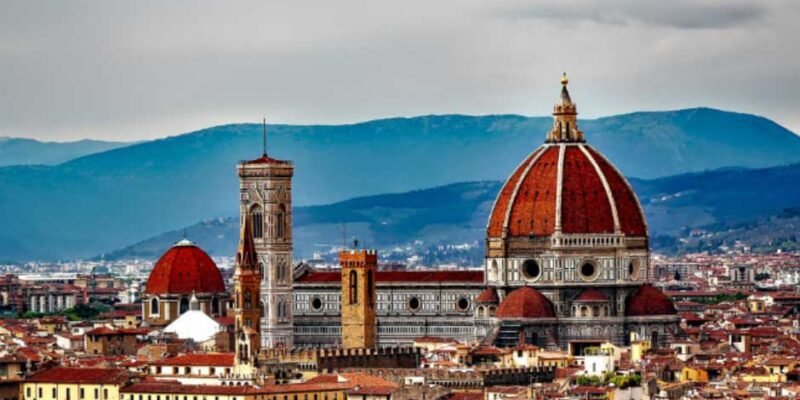Ciao, amici! Are you ready to embark on a linguistic journey filled with the enchanting sounds and deep meanings of the Italian language? Whether you’re learning Italian, planning a trip to Italy, or appreciate the beauty of words, this blog post is for you. In this first part of our exploration, we’ll dive into Italian words, their unique characteristics, and some of the most common and beautiful ones that will leave you in awe.
Italian Language: A Musical and Melodious Tongue
Italian is often described as one of the most beautiful and melodious languages in the world. It’s the native language of Italy, a country known for its rich history, culture, and art. But what makes the Italian language so special? One of the key elements is its musicality, thanks to the unique rhythm and pronunciation of words.
The Allure of Italian Words
Words in Italian are like pieces of art, each carefully crafted to convey meaning and emotion. Whether you’re an aspiring polyglot or someone who loves sitting down to a delicious plate of pasta, understanding common Italian words can add a wonderful layer of depth to your experience.
Double Consonants: A Distinctive Feature
Italian is known for its double consonants, which give the language a distinctive sound. These consonants are pronounced more emphatically than single ones, adding to the musicality of the language. For example, in the word “pizza,” the double “z” is pronounced with a sharp sound that’s uniquely Italian.
Native Speakers: Masters of Melody
Italian native speakers have an innate sense of the language’s rhythm and melody. When they speak, it’s as if they’re effortlessly weaving a beautiful tapestry of words. Learning Italian allows you to tap into this melodic expression and communicate with a whole new level of fluency.
Common Italian Words: Your Gateway to Italy
If you’re new to Italian, starting with common Italian words is essential. These are the building blocks of the language and will help you in everyday conversation, whether ordering food, asking for directions, or simply making small talk with locals.
“Ciao”: The Universal Greeting
You’ve probably heard “ciao” before, even if you’re not well-versed in Italian. This versatile word is a casual “hello” and “goodbye,” making it one of the most common and friendly phrases you’ll encounter in Italy. It’s like a warm welcome when you step foot in the country.
“Grazie”: Saying Thanks with Heart
Another word you’ll want to master early on is “grazie.” It means “thank you,” and saying it sincerely can go a long way in making a positive impression. Italians appreciate politeness and gratitude, so don’t forget to use this word liberally.
“Buon Appetito”: A Food Lover’s Delight
If you’re a food enthusiast (who isn’t?), then “buon appetito” is a phrase you’ll want to remember. It’s the Italian way of saying “enjoy your meal,” it’s often uttered with genuine warmth and a shared love for good food.
The Joy of Learning Italian Words
Learning a new language, especially one as beautiful as Italian, can be a truly rewarding experience. It opens up doors to new friendships, cultural understanding, and the ability to express yourself differently.
Speaking the Language of Love
When it comes to language, there’s something undeniably romantic about speaking Italian. The melodic rhythm, the passionate intonations, and the expressive gestures make every conversation feel like a dance. Whether you’re planning to visit Italy or want to master the art of speaking Italian, there’s a world of beauty awaiting you.
Italian Vocabulary: Building Blocks of Communication
To speak any language fluently, you need a robust vocabulary. The same holds true for Italian. Building your Italian vocabulary is like assembling the pieces of a linguistic puzzle. With each word you learn, you expand your ability to express yourself and connect with native speakers.
Italian Skills: Unlocking Doors to Communication
Mastering any language requires skills that go beyond vocabulary. Pronunciation, grammar, and conversational etiquette are crucial in effective communication. As you develop your Italian skills, you’ll find that the language opens doors to meaningful connections, whether you’re ordering a gelato or discussing art in a Roman piazza.
How Many Words Are There in Italian?
You might be wondering, how many words are there in the Italian language? Well, Italian, like many languages, has a vast vocabulary. Estimates vary, but it’s believed to have around 200,000 words. This includes common words, specialized terminology, and regional dialects. While you certainly don’t need to learn them all, expanding your Italian vocabulary will enhance your language skills and enrich your experience.
Unveiling Common Italian Words
Let’s take a moment to explore some common Italian words that you’re likely to encounter in everyday conversations. These words are essential for effective communication and carry a sense of the Italian way of life.
“Bella” and “Bello”: The Beautiful Ones
The words “bella” and “bello” both mean “beautiful” in Italian, but they are used differently depending on the gender of the subject. “Bella” is feminine, while “bello” is masculine. Italians are known for appreciating beauty in all aspects of life, from art and architecture to people and nature.
“Parlare”: To Speak
“Parlare” is the Italian verb for “to speak.” As you progress in your Italian journey, you’ll find that speaking the language becomes a joyful and rewarding experience. It’s the key to connecting with locals and truly immersing yourself in Italian culture.
“Comune”: Common
The word “comune” means “common” in Italian. It’s a simple word that can be quite useful in various contexts. Whether you’re describing common words, common practices, or common experiences, “comune” is a versatile term in your Italian vocabulary.
Speaking Like a Native: The Most Common Ones
To truly blend in and impress native speakers, you’ll want to familiarize yourself with some of the most common Italian words and phrases. These are the expressions that Italians use every day, and incorporating them into your speech will make you sound more like a local.
“Casa”: Home
The word “casa” means “home” in Italian. It’s a fundamental concept that holds deep cultural significance. Italians take pride in their homes, and “casa” represents not just a physical place but a sense of belonging and comfort.
“Pratica”: Practice
“Pratica” means “practice” in Italian, which is the key to becoming proficient in any language. Whether you’re practicing your Italian skills with a language partner or honing your pronunciation on your own, “pratica” will be your ally in the journey to fluency.
“Ascolta” and “Parla”: Listen and Speak
“Ascolta” means “listen,” and “parla” means “speak.” These two verbs are at the core of any conversation. When you listen actively and speak confidently, you’re well on your way to mastering spoken Italian.
The Beauty of Italian Language Continues
As we continue our exploration of the Italian language, you’ll discover that it’s not just about words; it’s about a way of life, a culture, and a deep connection with the people who speak it.
The Elegance of Italian Words
Italian is often regarded as a language of elegance, and it’s easy to see why. The way words roll off the tongue, the graceful intonation, and the lyrical nature of the language make it a joy to both listen to and speak. Let’s dive right into more beautiful Italian words that will captivate your senses.
“Amore”: Love
“Amore” is a word that needs no translation. It means “love,” and it’s a universally recognized symbol of affection and passion. When spoken in Italian, “amore” takes on a whole new level of emotional depth, echoing the romantic spirit that Italy is known for.
“Musica”: Music
It’s no surprise that in a country famous for its operas and classical composers, the word “musica” holds a special place in the hearts of Italians. It means “music” and encapsulates the harmonious soul of Italy’s musical heritage.
“Arte”: Art
“Arte” is the Italian word for “art.” Italy is a treasure trove of art, from Renaissance masterpieces to modern works of genius. When you say “arte” in Italian, you invoke centuries of creative expression and cultural significance.
The Allure of Italian Phrases
Italian isn’t just about individual words; it’s also about the delightful phrases that bring them to life. Let’s explore some of the most beautiful Italian words and meaningful phrases that will elevate your language skills and enrich your cultural experience.
“La Dolce Vita”: The Sweet Life
We mentioned this phrase in our previous section, but it’s worth revisiting. “La dolce vita” celebrates the good life, where one savors the simple pleasures and enjoys life to the fullest. It’s a quintessential Italian concept that resonates with people worldwide.
“Buona Notte”: Good Night
As the day comes to a close, Italians bid each other farewell with “buona notte,” meaning “good night.” It’s a gentle way to wish someone a peaceful night’s rest, and it reflects the warmth and hospitality that Italians are known for.
“In Bocca al Lupo”: In the Mouth of the Wolf
This unique phrase is used to wish someone good luck in Italian. The response to this well-wish is “crepi il lupo,” which means “may the wolf die.” It’s an example of the colorful idioms that pepper the local language and make it so captivating.
The Power of Words in Italian
Words in Italian are not just vessels of meaning; they can evoke emotions, create connections, and transport you to a different world. As you continue your journey into the beauty of Italian language and culture, remember that each word and phrase is a window into the soul of Italy and its people.
“Passione”: Passion
Italians are known for their passionate nature, and the word “passione” embodies this fiery spirit. Whether it’s for art, food, or life itself, Italians embrace their passions with enthusiasm, and “passione” is a word that resonates deeply with them.
“Sorriso”: Smile
A smile is a universal gesture of kindness, and “sorriso” captures the essence of that simple yet profound act. When you share a “sorriso” with someone in Italy, you spread warmth and joy.
A Language of Poetry and Romance
Italian is often hailed as a language of poetry and romance, and it’s easy to see why. The musicality of Italian words and the depth of their meanings create a tapestry of expression that is truly enchanting. Let’s continue our journey through some more beautiful Italian words and phrases.
“Solitudine”: Solitude
“Solitudine” is the Italian word for “solitude.” In a world filled with constant noise and distractions, finding solace in solitude is a precious experience. Italians appreciate the beauty of quiet moments, and this word captures that sentiment.
“Tramonto”: Sunset
Few things are as universally captivating as a beautiful sunset. The Italian word “tramonto” perfectly encapsulates the serene and breathtaking moments when the sun dips below the horizon, casting a warm glow across the sky.
“Sogno”: Dream
“Dreams” can inspire, motivate, and give life purpose. In Italian, “sogno” carries the same weight of aspiration and imagination. It’s a word that invites you to chase your dreams with passion and determination.
A Tapestry of Expressive Phrases
Italian is a language that excels at capturing the essence of complex emotions and experiences through phrases. Let’s delve into the deep meaning and expressive Italian phrases that add depth to your language skills.
“Vita Mia”: My Life
“Vita mia” is a tender and affectionate phrase used to express love and devotion. When someone calls you “vita mia,” they tell you that you are the most important person in their life.
“Tutto Bene”: Everything Is Fine
This simple yet reassuring phrase, “tutto bene,” is a way to convey that everything is going well and that there are no worries. It’s a reminder that life has its ups and downs but ultimately finds balance.
“Dolce Far Niente”: The Sweetness of Doing Nothing
This phrase captures the Italian art of savoring leisure and relaxation. It encourages you to appreciate the beauty of simply being in the moment without needing constant busyness.
Italian: A Language of Connection
Italian words and phrases are not just vehicles of communication; they are bridges to connect with the heart and soul of Italy and its people. Each word and phrase you learn opens up new avenues of understanding and appreciation.
“Tradizione”: Tradition
“Tradizione” represents the rich tapestry of customs, rituals, and values that make up the cultural heritage of Italy. Embracing and preserving traditions is an integral part of Italian life.
“Famiglia”: Family
Family is at the core of Italian culture. The word “famiglia” signifies not only the immediate family but also the extended family and the sense of belonging and support it provides.
Concluding Thoughts
Our journey through the world of Italian words and language has been a delightful exploration of beauty, expression, and connection. From the melodic sounds of Italian words to the profound meanings of their phrases, we’ve ventured into the heart of a language that is as poetic as it is practical.
As we conclude this series, we hope you’ve been inspired to continue your own linguistic adventure, whether you’re just beginning to learn Italian or seeking to deepen your understanding of its nuances. Remember that language is not just a means of communication; it’s a gateway to culture, a bridge to people, and a reflection of the human spirit.
The beauty of Italian words is a testament to the rich tapestry of Italy’s history, art, and traditions. Whether you’re captivated by the musicality of “amore” or the serenity of “tramonto,” each word and phrase is a brushstroke on the canvas of Italy’s cultural masterpiece.
As you continue your journey, keep listening to the sweet sounds of Italian, practicing your pronunciation, and embracing the phrases that resonate with your heart. Whether you’re speaking like a native or simply enjoying the language from afar, know that the beauty of Italian words will always be there to enchant, inspire, and connect.
Arrivederci, amici! Until we meet again in the world of words and languages.
FAQs
What are the basic words in Italian?
Essential Italian words include greetings like “ciao” (hello/goodbye), and “grazie” (thank you), and essential vocabulary for daily life, such as “si” (yes), “no” (no), “buon giorno” (good morning), “buona sera” (good evening), and “per favore” (please).
What is a popular phrase in Italy?
One famous phrase in Italy is “La dolce vita,” which translates to “the sweet life.” It embodies the Italian philosophy of living life fully and enjoying simple pleasures.
What is the formal Italian word for cool?
The formal Italian word for “cool” is “fantastico,” but in casual conversation, you’ll often hear “cool” or “bello” used to convey the same meaning.
What are common Italian phrases for “Hello”?
Common Italian phrases for “Hello” include “ciao” (informal, used among friends), “buon giorno” (good morning), “buona sera” (good evening), and “salve” (formal). Choose the appropriate greeting based on the context and your level of familiarity with the person you’re addressing.














Comments